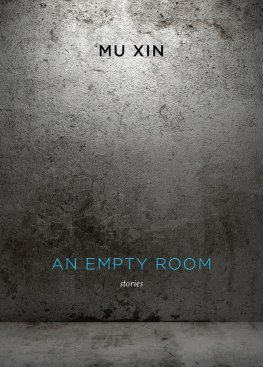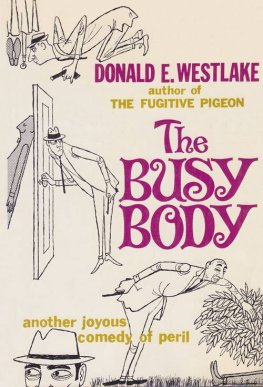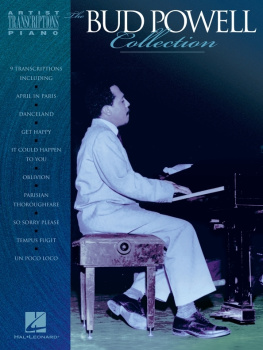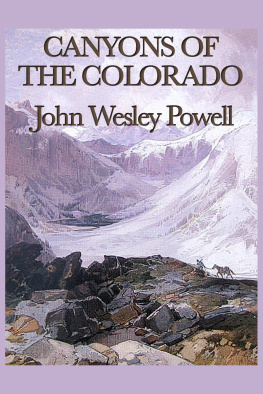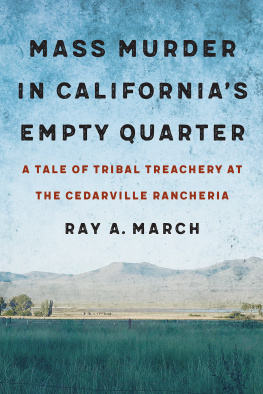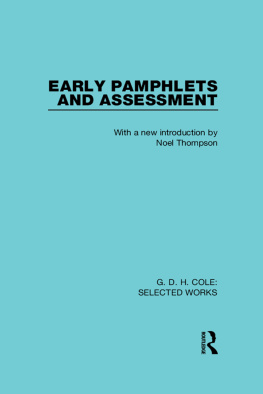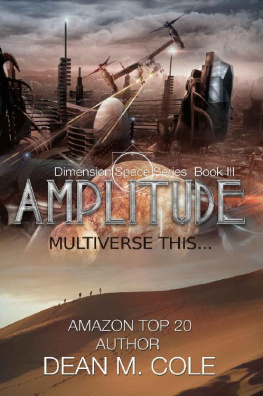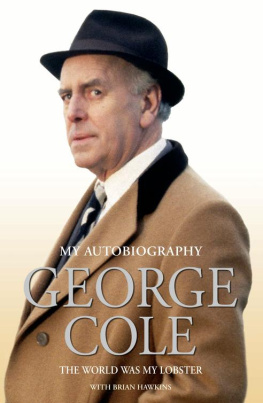First published 1975 by Transaction Publishers
Published 2017 by Routledge 2 Park Square, Milton Park, Abingdon, Oxon OX14 4RN
711 Third Avenue, New York, NY 10017, USA
Routledge is an imprint of the Taylor & Francis Group, an informa business
All rights reserved. No part of this book may be reprinted or reproduced or utilised in any form or by any electronic, mechanical, or other means, now known or hereafter invented, including photocopying and recording, or in any information storage or retrieval system, without permission in writing from the publishers.
Notice:
Product or corporate names may be trademarks or registered trademarks, and are used only for identification and explanation without intent to infringe.
Library of Congress Catalog Number: 2009050666
Library of Congress Cataloging-in-Publication Data
Cole, Donald Powell.
[Nomads of the nomads]
Bedouins of the Empty Quarter / Donald Powell Cole.
p. cm.
Originally published: Chicago : Aldine Pub. Co., 1975, under title Nomads of the nomads.
Includes bibliographical references and index.
ISBN 978-0-202-36357-8 (alk. paper)
1. Al Murrah (Arab tribe) 2. Bedouins--Rub al-Khali--Social life and customs. 3. Bedouins--Saudi Arabia-Social life and customs. 4. Rub al-Khali--Social life and customs. 5. Saudi Arabia-Social life and customs. I. Title.
DS219.B4C67 2010
305.892720538--dc22
2009050666
ISBN 13: 978-0-202-36357-8 (pbk)
We are here in the presence of extremes: an area so desolate that it is known as the Empty Quarterthough it is by no means empty; a place inhabited by a people so purely and thoroughly devoted to their pastoral pursuits that they are referred to as the nomads of the nomads. To the urban and peasant Arabs nearby, it is a land inhabited by jinns, but to the l Murrah and other camel keeping pastoralists, it provides a rich and rewarding life, for the milk is the sweetest, the air is pure and all men are brothers.
For either to survive, men and camels must live in close symbiosis; each completely dependent upon the other. The camels provide food, fiber and transport; man provides the knowledge of available resources, of which the most precious are water and the grasses that grow where rains have fallen. Donald Cole shows us that this is more complex and intricate than such a simple statement would suggest.
First of all, there is the intricate knowledge of the desert itself its varieties, its moods, its resources. So clever are these desert dwellers that they are thought to be the descendants of the spiritsthe jinnsthat inhabit this world. Next, there is the knowledge of the camelstheir needs and capacities, and the peculiarities of each individual animal. Knowledge of the landscape and knowledge of the animals must be brought together so the scarce resources are fully utilized, yet carefully conserved.
To wrest their livelihood from this apparently inhospitable environment, men must work in collaboration, and as important as their technical knowledgeperhaps more importantis the structuring of social life. The tribesmen of the Empty Quarter must have a flexible social system, one that enables the individual household to operate alone when the environmental situation requires, and yet enables it to fit into a larger structure when the season demands. This means that it requires a pattern of independence and equality, while at the same time providing the necessary leadership. It means that each person must be capable of performing every necessary task, but that the chores be equitably shared by all.
The ecology of this camel pastoralism pervades every facet of l Murrah life, and much that has seemed mysterious becomes meaningful in this context. We see the relationships of men and women in terms of the close collaboration required between them, and discover the personal element in that most enigmatic aspect of their social organizationmarriage within the lineage. We discover qualities of personality as these relate to the exigencies of desert existence, and we see how the religion of Islam is transformed by their special problems.
The l Murrah live according to ancient traditions forged in their desert environment, but this does not mean their life is unchanging. Cole shows us that already there are changes that began in 1932, when Saudi Arabia became a nation and intertribal raiding and warfare was brought to an end. He also shows the adaptability that they are bringing to bear as the desert is increasingly invaded by motor transport and oil rigs. Whether l Murrah life will survive in the Empty Quarter will depend on the wisdom of their national leadership in permitting them to make the necessary adjustments in their traditional system-adjustments that they are willing and able to make.
Man everywhere must attune his life to the requirements of his economy. In a place like the Arabian desert, which places severe limits on how one must live, these adjustments are most insistent. The tribes of the Empty Quarter show us that even when these demands pervade every facet of behavior, life can still be rich and rewarding.
Walter Goldschmidt
For two years, between April 1968 and May 1970, I had the good fortune to live in Saudi Arabia. I went there as a graduate student in anthropology to do research for my doctoral dissertation at the University of California, Berkeley. No academic anthropological research had every been carried out in Saudi Arabia and I went there as a kind of ethnographic explorer. At the suggestion of Dr. Abd al-Aziz al-Khuwaiter of the University of Riyadh and of Musaud al-Taji al-Faruki of the Saudi Arabian Ministry of Agriculture and Water, I decided to work among the l Murrah Bedouin tribe. The government of Saudi Arabia was developing a large-scale sedentarization project for nomads at Haradh and the l Murrah were being considered for inclusion in this project. Although I was skeptical about the merits of sedentarization projects, I welcomed this opportunity to work among one of the most traditional Bedouin tribes in Arabia and to make my research of some relevance to government administrators concerned about the development of their country.
I spent eighteen months with the l Murrah in the desert regions of eastern and southeastern Saudi Arabia. During most of this time, I lived as a permanent guest in the tent of Ali ibn Salem ibn al-Kurbi of the l Azab patrilineage. Alis second oldest son, al-Kurbi, was hired as a driver-guide at my behest by the Saudi Arabian Ministry of Agriculture and Water, which also generously offered me the use of a pickup truck.
The realization of this study would have been impossible without the active cooperation and friendship of al-Kurbi who not only expertly guided me through the deserts of Saudi Arabia but guided me among the l Murrah as well. A young man in his early thirties, he welcomed me as a brother, helped me learn the l Murrah dialect of Arabic, and introduced me to hundreds of his fellow tribespeople. I also owe a special debt to his father, his fathers brothers, and his mothers brothers for teaching me genealogies, for telling me stories about raids and the days of old, and for instructing me in the traditions of the Arab nomads. His brother, Merzuq, and his cousin, Hurran ibn Muhammad, both long-haired youths, taught me how to ride camels, took me herding with them, and taught me most of what I learned about the desert itself.




